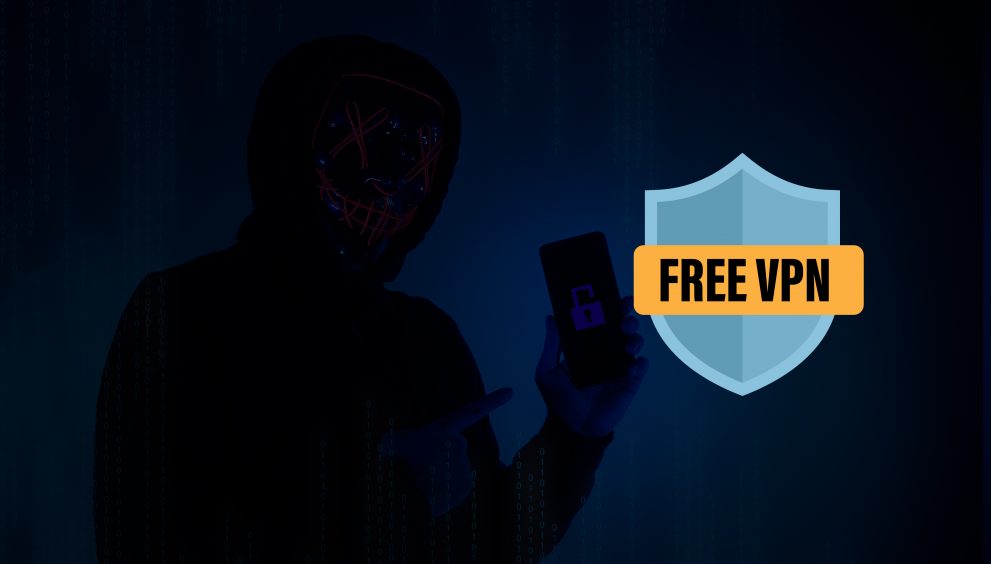In today’s digital age, protecting your online privacy with a secure VPN connection is essential. Virtual Private Networks (VPNs) encrypt your data and shield your online identity, making them popular for security and accessing restricted websites.
Many free VPN services are tempting, offering a no-cost path to enhanced privacy. But before you jump in, consider this: is a free VPN safe?
Let’s unveil the truth behind their promises and explore why they might not be as secure as you think.
What are Free VPN Services?
Free VPN services offer users a way to browse the internet anonymously and securely, but there are potential downsides. While a free VPN connection might be tempting with promises of privacy, data encryption, and unrestricted access, it’s important to consider the disadvantages of a VPN before using one.
Popular free VPN providers exist, but it’s crucial to understand is VPN safe with these services, as their business models might prioritize profit over user security.
Security Risks Associated with Free VPNs
While free VPNs may seem tempting, they come with a host of issues that can undermine your online security and overall internet experience. Let’s break down some key areas where free VPNs fall short compared to their paid counterparts.
Data Privacy Concerns
One primary risk of using free VPNs is weak encryption, leaving your data vulnerable to hackers. Free VPN providers may also sell user data to third parties, potentially exposing sensitive information.
Malware and Adware
Free VPNs sound great, but beware! They might contain hidden malware and adware that can harm your device and steal your data.
Hence, to ensure your online safety, consider investing in a reputable paid VPN. While it may cost a few bucks, it’s a small price to pay for real security and peace of mind.
Logging Policies
Another significant risk with free safe VPN is their logging policies. Unlike reputable paid VPNs that adhere to strict no-log policies, free VPNs often log user activity, including browsing history and connection times. This logged data can be sold to advertisers or handed over to authorities upon request, undermining the privacy you sought using a VPN.
Performance and Reliability Issues
Here are a few performance and reliability issues that people who use
free VPNs face:
Speed and Bandwidth Limitations
Free VPNs often have slower speeds and bandwidth limitations. These restrictions can severely impact user experience, especially when streaming videos, gaming, or downloading large files.
On the other hand, paid VPN services typically offer faster speeds and unlimited bandwidth, ensuring a smoother and more reliable internet experience.
Server Infrastructure
Free VPNs usually have fewer server locations and less reliable connections. This can lead to frequent disconnects and unstable connections, making maintaining a secure and consistent browsing session difficult. Paid VPNs invest in extensive server infrastructures, offering more server locations and reliable connections.
Legal and Jurisdictional Concerns
The jurisdiction in which a VPN provider operates can have significant implications for data privacy. Free VPNs based in countries with weak privacy laws may be subject to legal requests for user data and even data seizure. This can further compromise your privacy and security.
Comparative Analysis: Free vs. Paid VPN
Here is a breakdown of free VPNs and paid VPNs:
Free VPNs:
- Cost: No financial investment.
- Security: Often have weaker encryption.
- Data Logging: May log and sell user data.
- Speed: Slower due to limited servers and high user load.
- Bandwidth: Usually capped with limited data usage.
- Ads: Frequently ad-supported, leading to interruptions.
- Customer Support: Limited or non-existent.
- Server Locations: Fewer servers and locations.
- Reliability: Higher risk of connection drops.
Paid VPNs:
- Cost: Monthly or yearly subscription fees.
- Security: Strong encryption and advanced security features.
- Data Logging: Strict no-log policies.
- Speed: Faster speeds with optimized servers.
- Bandwidth: Unlimited data usage.
- Ads: Ad-free experience.
- Customer Support: 24/7 customer support.
- Server Locations: Extensive server networks in multiple countries.
- Reliability: Stable and consistent connections.
Benefits of Paid VPN Services
Paid VPNs take your online security a step further compared to free ones. Here’s why:
- Stronger Encryption: Paid VPNs boast robust encryption that keeps your data under lock and key.
- No-Log Policy: They prioritize privacy with strict no-log policies, meaning your browsing history and info stay hidden.
- Reliable Support: Need help? Paid VPNs typically offer dependable customer support to address any concerns.
Secure your data with Quick Heal!
Free VPNs might seem tempting due to their cost-free nature, but their security risks far outweigh the benefits. From data privacy concerns and potential malware infections to performance issues and legal risks, free VPNs come with a myriad of issues.
Hence, instead of compromising your security, it’s wiser to invest in a trusted solution like Quick Heal Total Security. It offers comprehensive protection for your devices, safeguarding you from viruses, malware, spyware, ransomware, and phishing attacks at just ₹1,591.00 for 1 year and ₹3,165.00 for 3 years for 1 user.
With Quick Heal, you can enjoy peace of mind knowing that your digital assets are secure. Discover the Ultimate Antivirus Solution Today!
Related Products:
